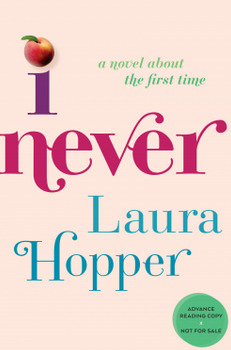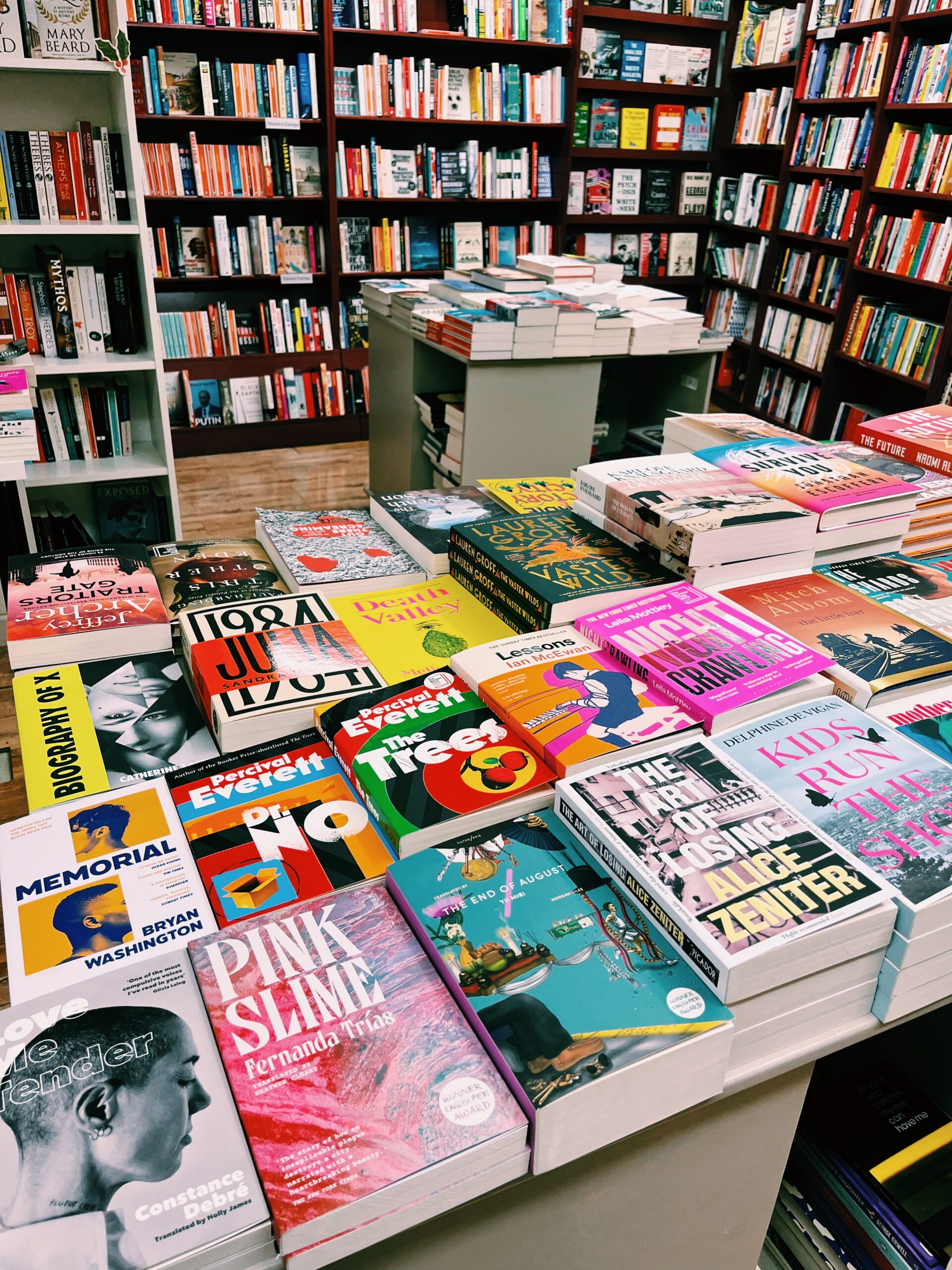Review:
Title: I Never 
Author: Laura Hopper
Publishing: November 7th 2017 by HMH Books for Young Readers
Format: ARC
Source: Publisher
Genre: YA; Contemporary; Romance
Date Read: May 2017
Janey King’s priorities used to be clear: track, school, friends, and family. But when seventeen-year-old Janey learns that her seemingly happy parents are getting divorced, her world starts to shift. Back at school, Luke Hallstrom, an adorable senior, pursues Janey, and she realizes that she has two new priorities to consider: love and sex.
Inspired by Judy Blume’s classic Forever, I Never features a perfect, delicious, almost-to-good-to-be-true high school relationship . . . and it doesn’t shy away from the details.
Thoughts:
I’m a big fan of what I feel are ~realistic~ portrayals of teenage experiences (think Those Girls) and sex positive books in YA. There’s still a need for more positive, un romanticized narratives, but I Never was a good start. This novel is pitched as being the “new” Judy Blume’s Forever. I’ve never read Forever (this actually made me want to for the comparison) but there are certain high hopes that come along with comparing ones book to a cult classic. When I first came across I Never was very quickly intrigued by the premise, not only because of it’s explicit discussion of sex, but also because it was about the first time. Before I get into the nitty gritty I should preface that this review might get a little TMI, I mean we are discussing sex here so please don’t read beyond your comfort level.
I never isn’t a particularly short/long book, but I absolutely blazed through it in a day. My ferocity reminds me of the way that I tend to consume Taylor Jenkins Reid books–I fall fast and hard. The interesting premise of I Never aside, I very quickly found Janey to be a very boring protagonist. She seemed ~semi~ well developed…I think what she lacked the most was an emotional depth? I struggle with saying this because Janey does have emotional reactions in appropriate situations, but I think that they all felt a little contrived. BUT while I found the averageness of Janey to be a negative aspect of the book, this could potentially make her a more universally relatable character. Janey remains insecure throughout the novel, and I was disappointed with this lack of personal development because if Janey had changed due to her first boyfriend it would have been her “changing for a guy”, it would have been her changing due to new experiences. The lack of this development in the novel caused Janey as a protagonist to be dissatisfying. However, boring Janey aside, her life is incredibly grounded in other details. The shifting relationship between her parents and the unexpected shift in home life continues to be a focal point throughout the novel, balancing out the romance. This is also another shoutout for family in YA, and although Janey doesn’t have any siblings, her relationships with her parents amidst the tumultuous change in dynamic rings true for many people’s experiences.
Janey’s story is not just grounded in her family, but also in her relationships. Janey’s friends are very present during the novel, and Hopper makes a point to emphasize that friendships are not always hunky-dory. Important friendship lessons aside, I found that all three of Janey’s closest friends could have been more developed. Their interactions, while sweet, always felt like surface interactions. I wish we could have seen Janey’s friends as more realistic people, because I think that they would have complimented Hopper’s characterization of Janey. I was proud to see the inclusion of a boy-girl friendship, but disappointed that it didn’t really have a purpose other than for her friend to disapprove of Janey’s new boyfriend (Luke). I also appreciated the respect the girl friends had for their varying levels of sexuality, especially because the social construct of a “virginity” was generally left out of the novel. But again, I felt like the characters were more tools for a message and not people.
And now, the romance. I didn’t LOVE that Luke was “popular” (and thus viewed as unattainable” because it romanticized their relationship in a cheesy way. Again, I felt like the relationship was contrived. However, social status aside, the beginning of their relationship was KILLER. I loved how Hopper conveyed the nerves and distractions and general feelings of excitement that come along with first dates. I loved it! The majority of the relationship was lovely, they were communicative and consensual. However, as sex positive as I Never was, I thought that Janey’s parent’s were a ~little~ unrealistic in the way that they handled it, but that’s just me. Towards the end of the novel Janey began to be frustrating. Why didn’t she and Luke discuss the whole “I’m a senior going to college” thing sooner. It just felt unrealistic that suddenly the reality of the situation just dawned on them. I’m honestly surprised she didn’t dwell on it more.
There were times when I Never was incredibly brave. And then there were times in which I felt like it could have been bolder. Janey has literally never orgasmed before her first relationship, and this disappointed me. In a novel chock full of other sexual positivity, why couldn’t we have had a positive portrayal of female masturbation? I take issue with this. Also, while I Never‘s depiction of couples fighting in healthy/unhealthy ways (and distinguishing between the two) was awesome (!!!) I was frustrated that Hopper left out the hardest type of conversation…the “I love you but have to let you go conversation”, because from the moment Janey and Luke go on their first date the reader is aware that this is where their relationship is headed. Deep down Janey and Luke really do care for each other, but the lack of this conversation detracts from the book. It’s inclusion would not only have wrapped up several unanswered questions for the audience, but also would have been a very healthy way to reassure readers who are going through similar experiences. Lastly, I Never was very, very heterosexual, and this was disappointing. For novel that made so much of an effort to show sex positivity (which is still important), I wished that this had been expanded to include people across the spectrum in some way.
Final Thoughts:
As critical as I have been of I Never and its character development, there are so many things that this novel does well. Hopper has crafted relatable characters, characters going through the types of teenage experiences that make your heart ache. In this day and age sex positivity in teenage literature is imperative and important. I Never is not perfect, but it’s a step in the right direction. This novel can open the doors for lots of inclusive novels to come and in the mean time it can remain relatable for the average American teenager. I’ll leave you with this:
We’re going to change and grow and make mistakes. We’re going to start and end relationships. We’re going to reinvent ourselves. Real friends need to give each other room to screw up, bloom, change, and figure out who we want to be (121).***
***This quote is from an uncorrected galley and may not be present in the published form of the book




